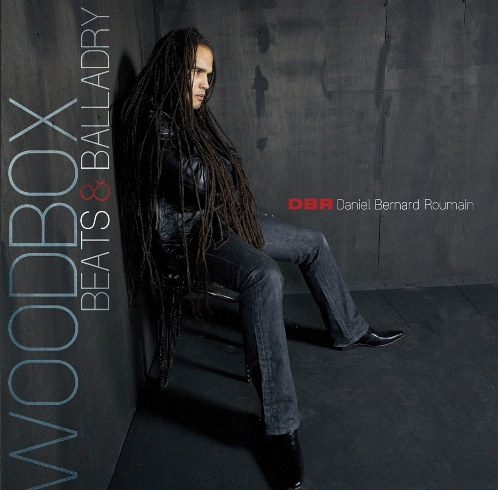
Broward’s Own ‘DBR’ Charts Crossover Course
Earlier this week — yesterday, in fact — a new album by a Broward County native who’s making good in the world of classical crossover was released.
Daniel Bernard Roumain, a violinist who grew up in Margate, has just released Woodbox Beats & Balladry, which features tracks such as Sonata for Violin and Turntables, part of which can be heard in this video sent along by his press agent.
I did a brief comment on another blog in 2007 about Roumain’s earlier disc, Etudes 4 Violin and Electronix, and while I wasn’t completely enamored of the music on it, I did admire Roumain’s funky way of fiddling, which then as now reminds me of Papa John Creech. Two pieces on that disc in which Roumain played with pianist and composer Ryuichi Sakomoto seemed to be the best overall, and I’ll be interested to hear the new disc when I can give it some more time.
Roumain went to Coconut Creek High before transferring to the Dillard High School music magnet program, and now with a doctorate in hand after studies with the fine American composer William Bolcom, Roumain is busily writing new music and exploring his particular blend of popular and classical styles.
His site is very impressive from the standpoint of the number of score excerpts it offers; if you can read notation you can see how the styles mix right on the page. A difficult passage in his String Quartet No. 1 (X), is followed by the tempo notation “Funky, with soul,” and you can see the kinds of rhythmic feeling he’s trying to get across in the music right there.
And there are a lot of interesting compositions listed here: Voodoo Violin Concerto No. 1, Fast Black Dance Machine, Hip-Hop Essay for Orchestra, Jam! For Piano. Here is a guy who’s putting together a fully notated corpus of art music that bridges both of the musical worlds he inhabits.
The trick for Daniel Bernard Roumain will be for his music to sound seamless and unified even though it freely partakes of very different traditions in the same piece. That’s the hardest part, and where we’ll see how effective he is at imparting his compositional personality.
It could very well be that Roumain and composers like him, such as Mark O’Connor (who played a gig in Wellington earlier this year and whose double concerto for violin and cello is on next weekend’s Miami Symphony programs), are at last be bringing to American composition a kind of new music that doesn’t sound self-conscious about its disparate roots, and that really does provide a new synthesis that a wider audience can relate to, one that speaks more directly than any individual style to the citizens of the global village.
One can only hope so, and follow this South Florida-reared musician’s career with interest.